In ancient Rome, gladiatorial games transcended mere entertainment, serving as a potent political instrument. These spectacles, characterized by fierce combat and public grandeur, offered more than just a diversion for the masses. They were a stage for emperors to display their power and influence.
Prominent leaders such as Augustus and Trajan understood the political significance of these events. By hosting grand games, they celebrated military triumphs and reinforced their political standing. These games functioned as a means to curry favor with both the elite and the common populace, embedding themselves into the very fabric of Roman society.
The gladiatorial arena thus became a reflection of the intricate power dynamics within the Roman Empire, showcasing the interplay between authority and public persuasion.
Origins of Gladiatorial Games
The historical roots of gladiatorial games can be traced back to the Etruscans, who significantly influenced Roman culture. Initially, these contests were closely tied to rites of death and held profound religious significance. The earliest recorded instance of Roman gladiator games dates to 264 BCE, organized to honor a deceased patriarch. Although these religious aspects faded over time, remnants persisted in rituals like the ceremonial execution of fallen gladiators.
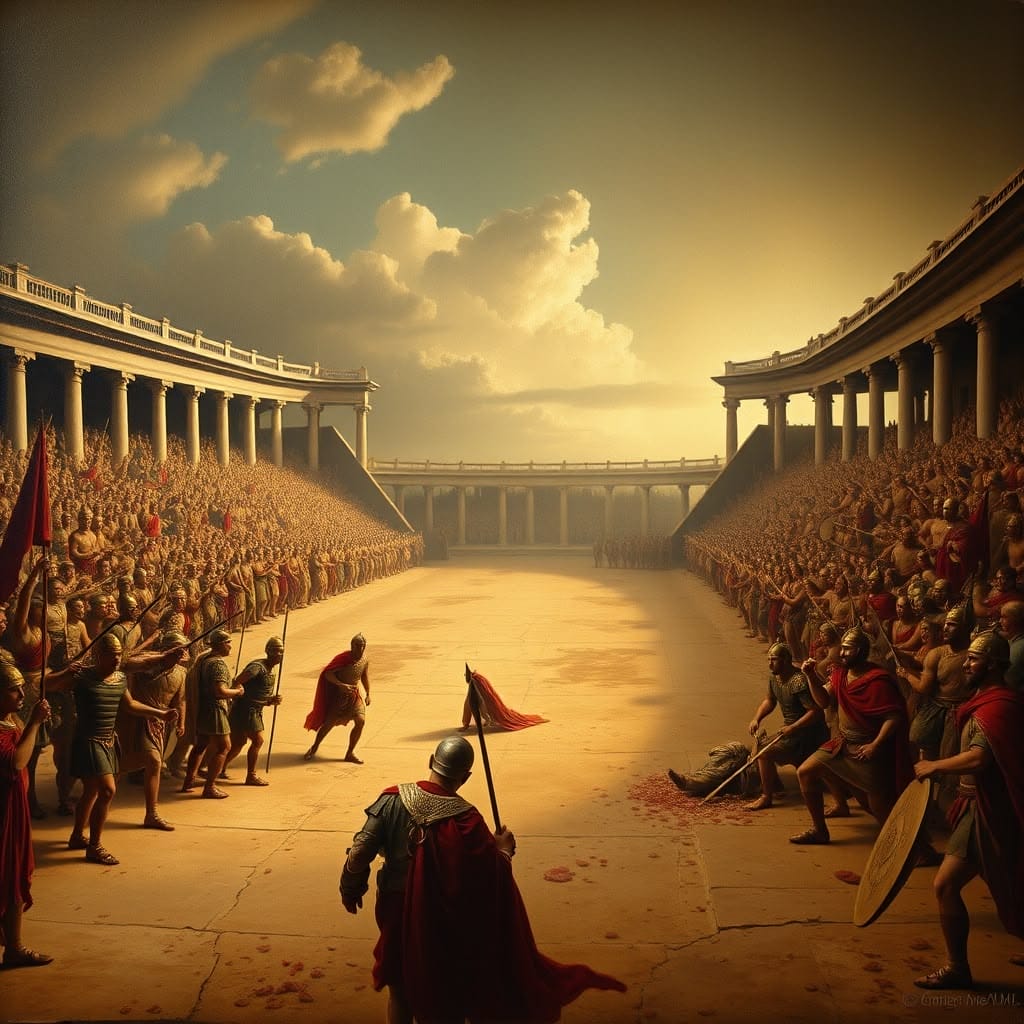
As the games evolved, their societal roles expanded. Originally part of munera, private vows to honor the dead, they transformed into public spectacles under the aegis of emperors and wealthy citizens. These events became opportunities to display wealth, commemorate military victories, and maintain social order. Gladiators, often slaves or prisoners of war, became symbols of Roman ideals such as valor and martial prowess, reflecting broader societal values.
The games thus shifted from private, somber commemorations to grand public displays, serving multiple functions within Roman society beyond mere entertainment.
Emperors as Showmen
In the grand spectacle that was ancient Rome, emperors assumed the role of chief orchestrators of the gladiatorial games, transforming them into powerful political tools. As ‘editors in chief,’ they curated these events with remarkable precision, showcasing their ability to entertain while simultaneously asserting their dominance.
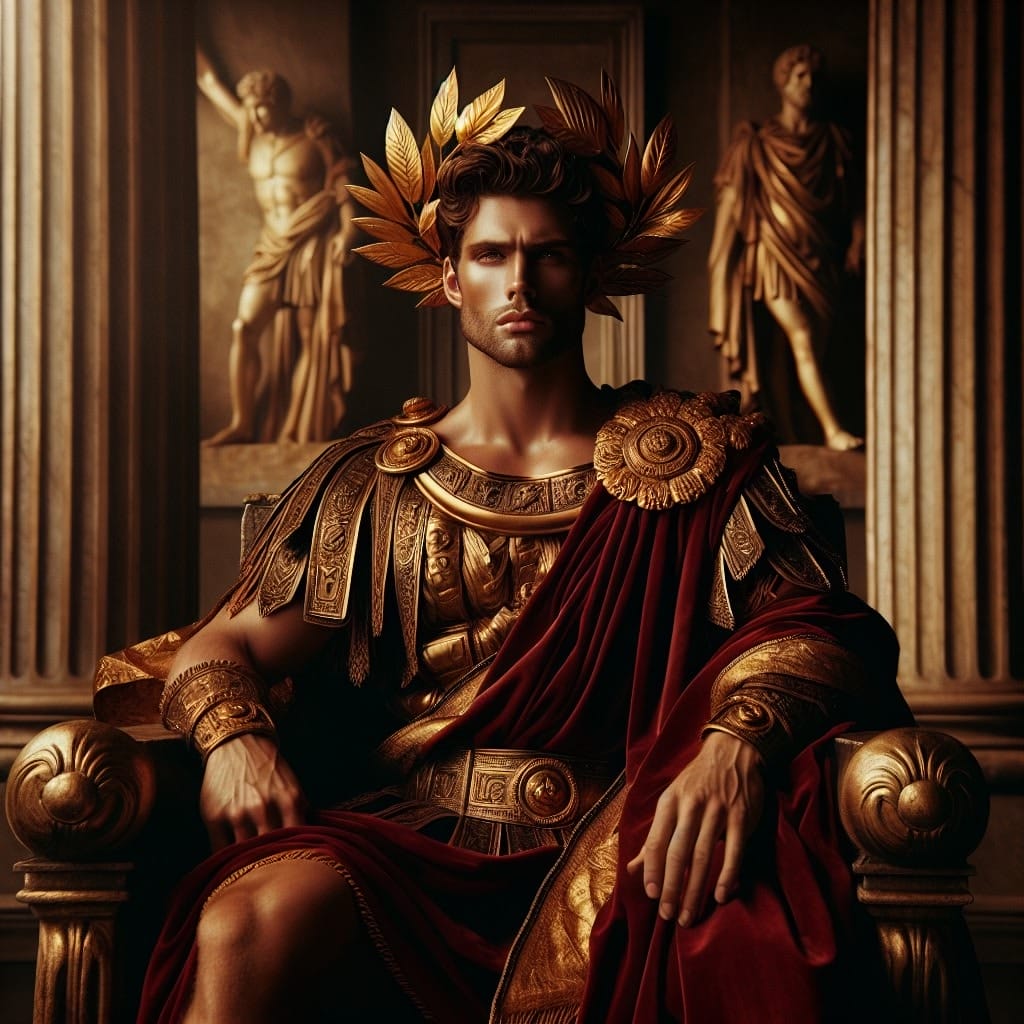
Emperors like Augustus used the games to engage with the masses and strengthen their imperial image. By hosting extravagant spectacles across multiple venues, Augustus not only celebrated military triumphs but also solidified his popularity among the Roman populace. In contrast, Caligula’s reign was marked by opulence and brutality, as he leveraged the games to demonstrate and exercise his power, albeit with a more macabre flair.
These orchestrations served a dual purpose: they were a means of controlling public perception and a method of reinforcing the emperor’s supremacy. Thus, the games became a stage on which emperors could project their political ambitions and cultivate their reputation, ensuring their legacy endured through the ages.
Augustus’s Grand Spectacles
Augustus adeptly transformed gladiatorial games into a powerful vehicle for propaganda. By orchestrating majestic spectacles, he reinforced his political agenda and celebrated his military triumphs. Augustus hosted games of unprecedented scale, including a monumental sea battle on an artificial lake near the Tiber, underscoring his commitment to grandeur and public entertainment.
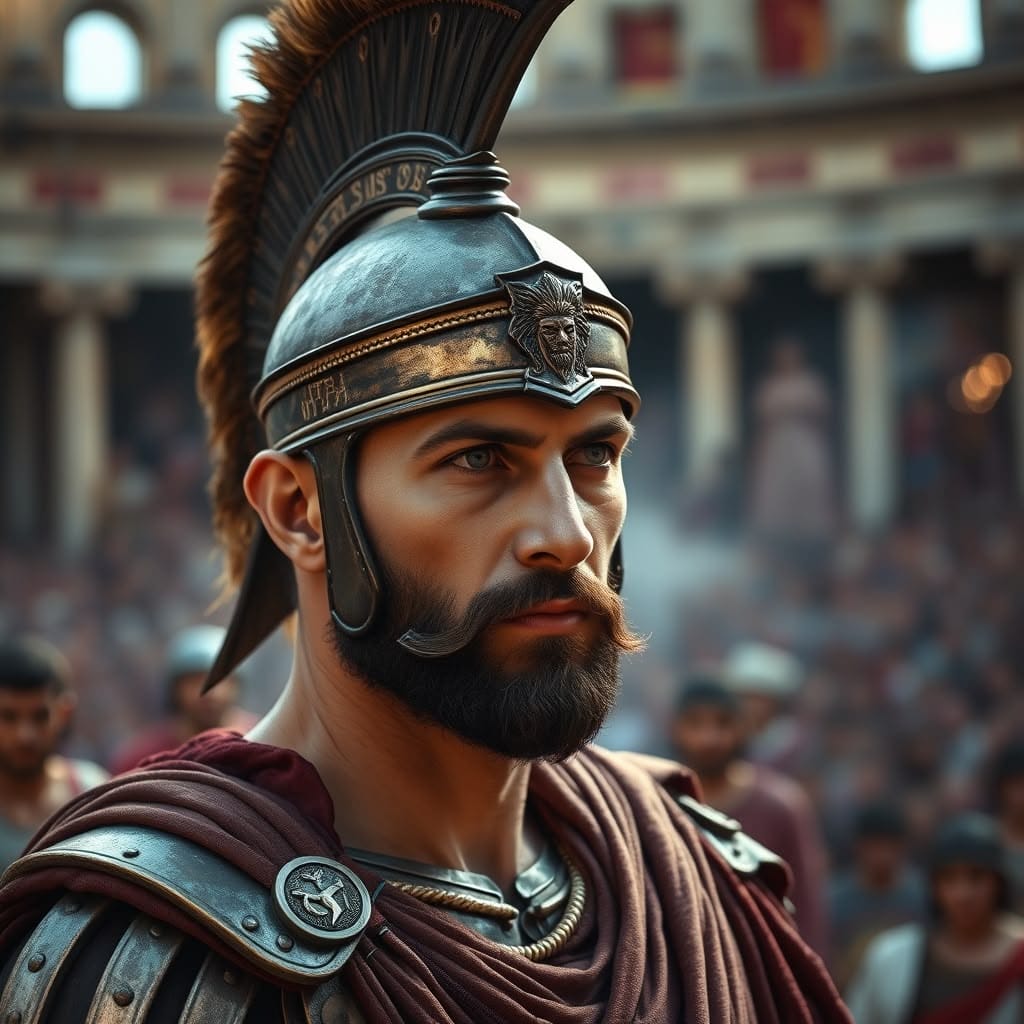
These events were meticulously designed to link his leadership to divine favor and military success. The display of Parthian hostages in the arena highlighted Rome’s dominance under his rule. Augustus’s spectacles served as a strategic tool to convey moral renewal and reinforce traditional Roman values, aligning his image with stability and prosperity.
Through these games, Augustus not only celebrated victories but also cultivated a public perception of benevolent authority. His impressive shows of power crafted an enduring legacy, showcasing his rule as a period of peace and continuity, forever entwining his name with the glory of Rome.
Trajan’s Celebratory Games
The gladiatorial games during Emperor Trajan’s reign were a spectacle of extraordinary scale and ambition, lasting an unprecedented 123 days. These events were meticulously organized to commemorate his military triumphs, particularly in Dacia and against the Parthians, showcasing the vastness of the Roman Empire’s power.
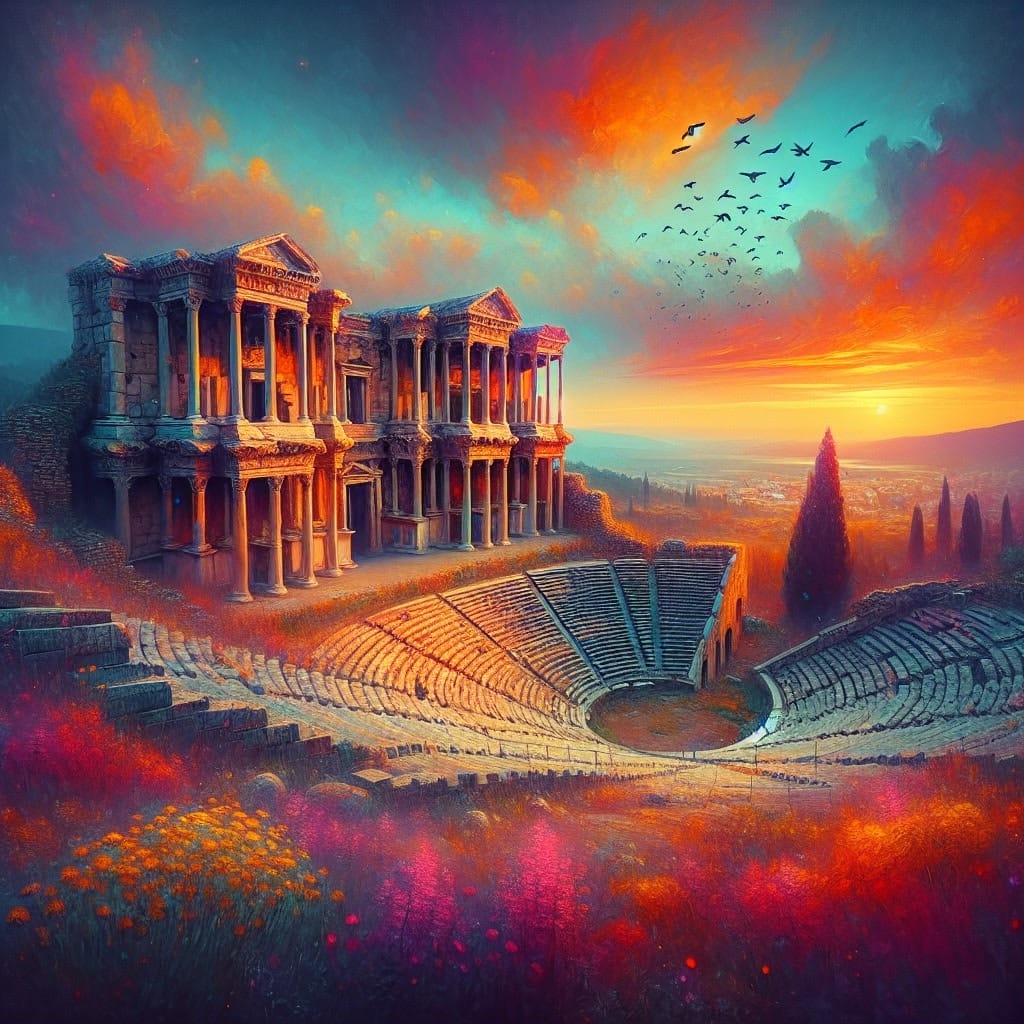
The games held in the Colosseum featured diverse participants, including women and dwarves, alongside the traditional male gladiators, reflecting the inclusivity and complexity of Roman entertainment. This grandiosity not only captivated the public but also reinforced Trajan’s image as a ruler dedicated to the prosperity and glory of Rome. The elite and commoners alike were drawn into the spectacle, enhancing his popularity and solidifying his political standing.
Trajan’s ability to use these games as a platform for political gain was evident in the way public perception was swayed. His reign was marked by public acclaim, with the Senate bestowing upon him the title ‘Optimus Princeps.’ The games served as both a celebration of his victories and a testament to his effective leadership, further entrenching his legacy as one of Rome’s most esteemed emperors.
Societal Values Reflected
Gladiatorial games in ancient Rome were not merely displays of combat; they were a profound reflection of societal values such as bravery, loyalty, and martial prowess. Gladiators were celebrated for their courage in facing mortal danger, embodying the Roman ideal of bravery—a virtue held in high regard alongside the valor of Roman soldiers.
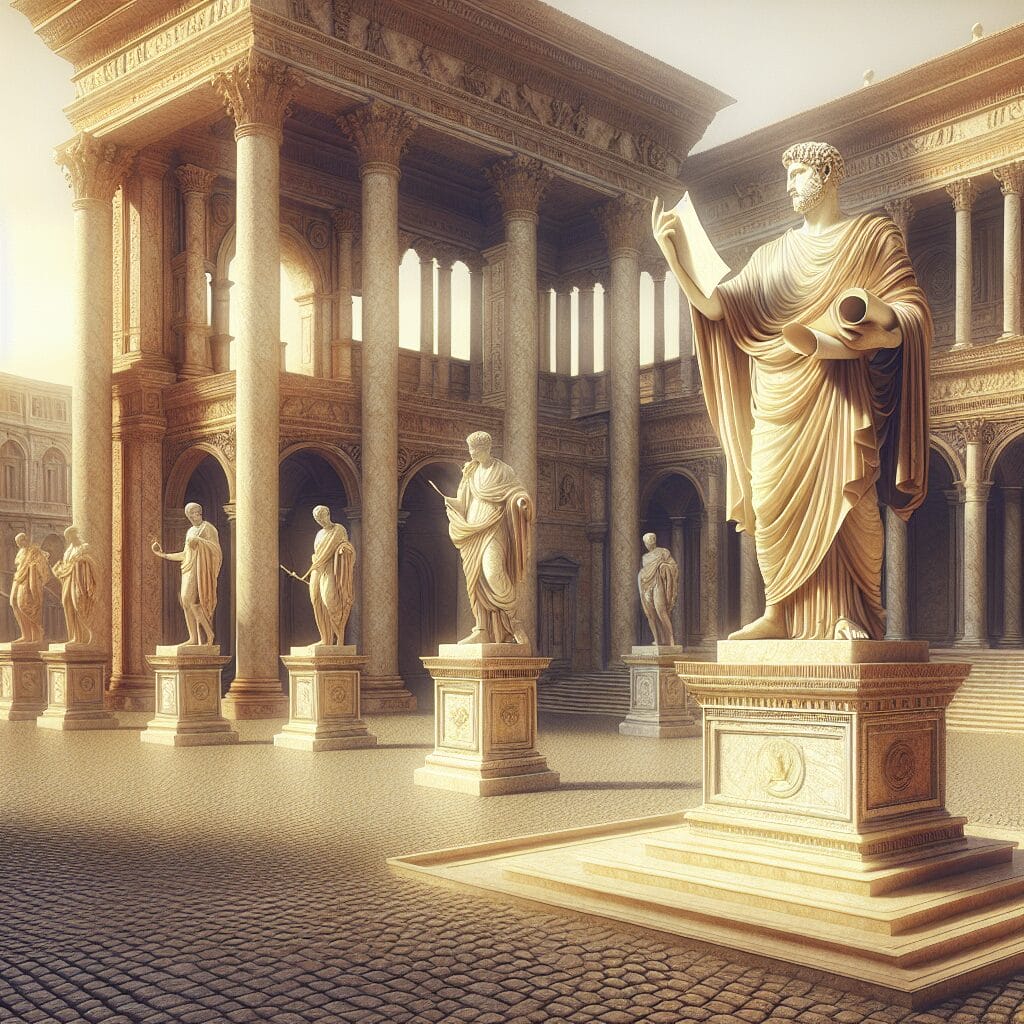
The loyalty exhibited by gladiators, particularly to their trainers and patrons, underscored the importance of allegiance within Roman culture. This sense of loyalty extended to the state and its leaders, as games often honored emperors or significant figures, reinforcing societal bonds and hierarchies.
Moreover, the games encapsulated the martial prowess esteemed in Roman society. Gladiators, bound by their legal oaths, demonstrated skill and endurance, mirroring broader cultural values. These spectacles, while entertaining, served as microcosms of Roman life, intertwining social dynamics with the imperial agenda and reflecting the complex interplay of politics and cultural identity in the empire.
Influence on Public Opinion
The gladiatorial games were a potent instrument of propaganda used to sway public opinion in favor of Roman emperors. By captivating the masses, these spectacles served to reinforce the power and dominance of the Roman Empire. The grandeur of the games was not just about entertainment; it was a strategic display of imperial might that distracted citizens from their daily struggles, thereby fostering loyalty to the state.
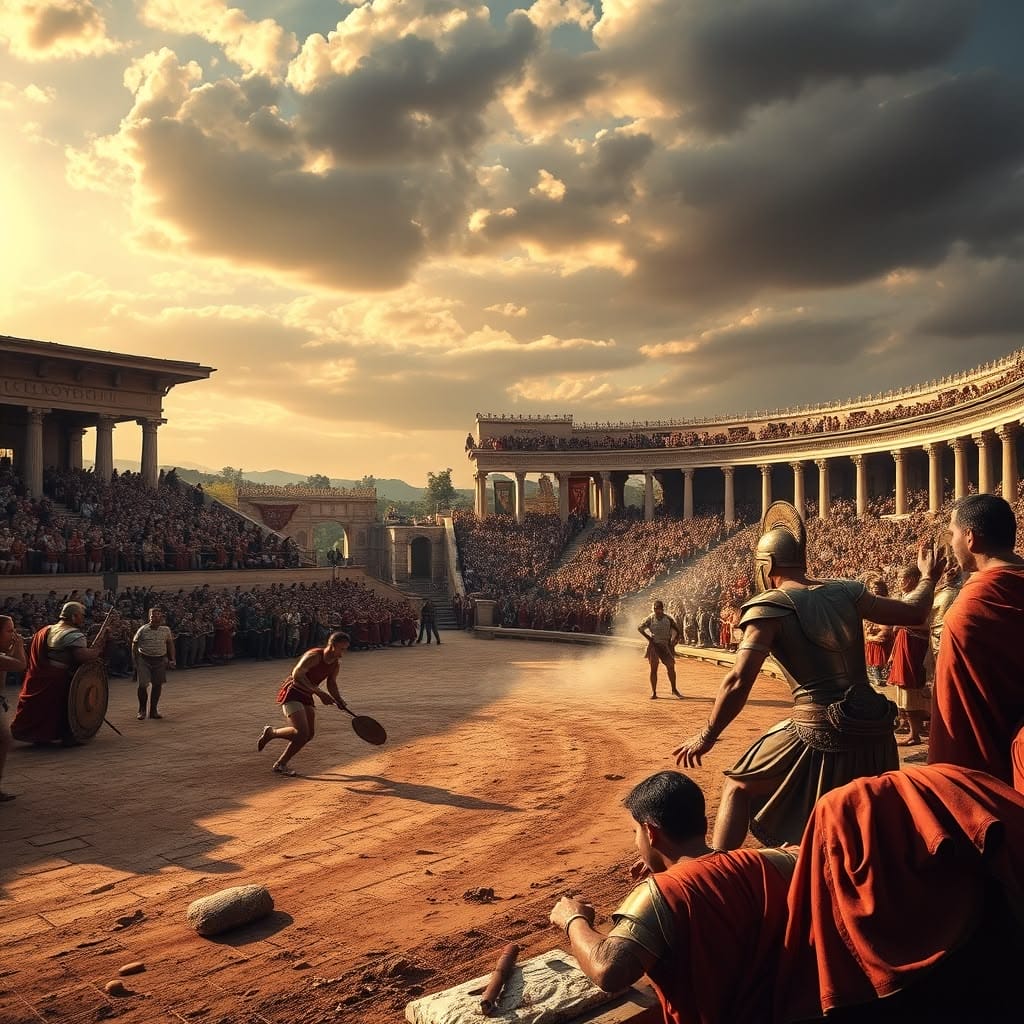
Emperors, recognizing the importance of public engagement, hosted grand spectacles at the Colosseum to maintain their popularity. Popular emperors were able to bolster their image through these events, showcasing their power and generosity. Conversely, emperors who failed to resonate with the populace faced ridicule, as seen in the case of Tiberius, whose death was mocked as a potential source of entertainment.
The games also allowed the public to participate in the illusion of political power through the ‘thumbs-up’ method, further engaging them in the governance process. These elements demonstrate how gladiatorial contests were not only a reflection of societal values but also a tool for emperors to secure their legacy and authority.
Elite Engagement and Support
Within the intricate political landscape of Ancient Rome, gladiatorial games were more than public spectacles; they were strategic tools for emperors to engage and secure the allegiance of the elite. By hosting lavish games, emperors demonstrated their wealth and power, thereby reinforcing their authority and cultivating a network of influential supporters. The seating arrangements within the Colosseum reflected these social hierarchies, with the wealthiest citizens occupying the most prestigious seats, emphasizing the importance of elite approval.
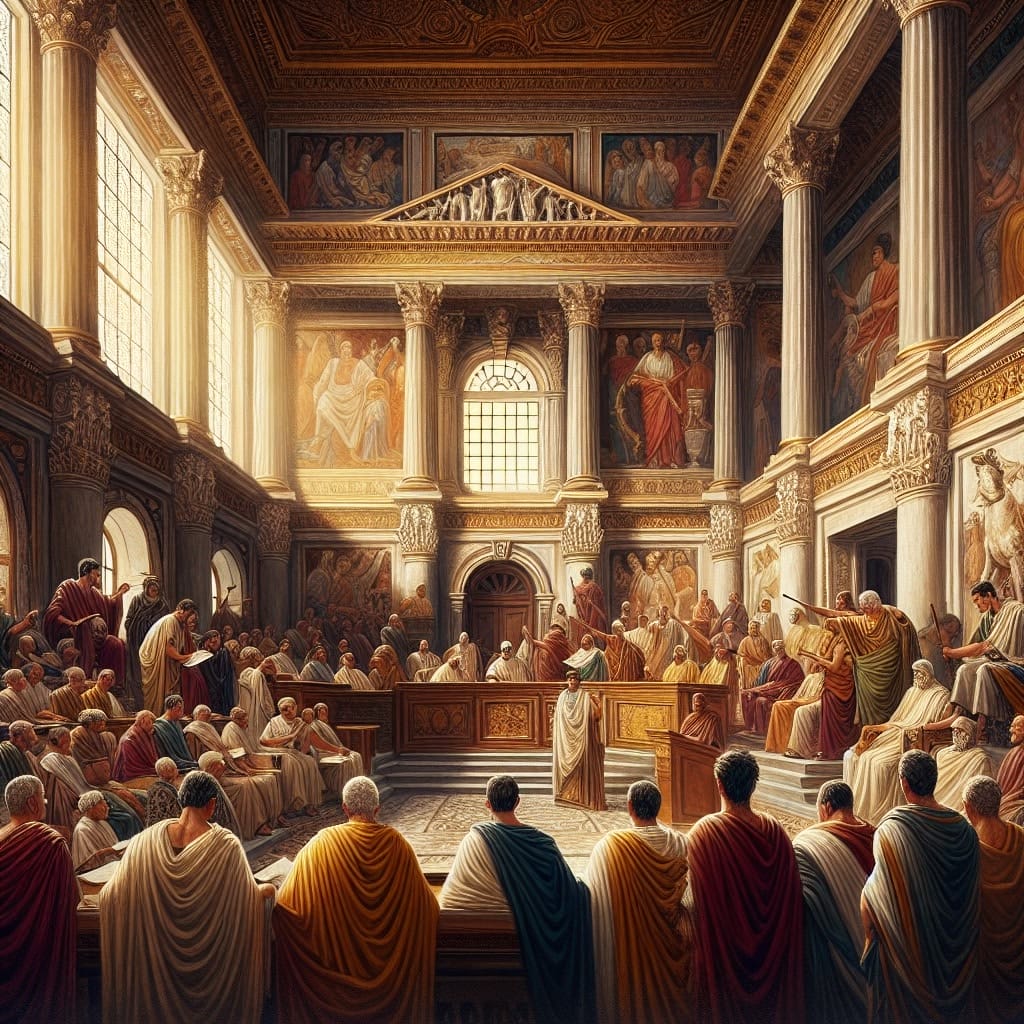
Through these grand events, emperors were able to forge political alliances, leveraging entertainment as a medium for diplomacy and negotiation. For instance, influential senators and other high-ranking officials were often invited to partake in the festivities, fostering goodwill and potential collaborations. This strategic use of entertainment ensured that the emperor’s influence extended beyond the populace and into the echelons of power, strengthening their political standing and solidifying alliances crucial for maintaining stability in the Roman Empire.
Economic Implications
The economic impact of gladiatorial games in Ancient Rome was profound, intertwining financial considerations with political strategy. Hosting these grand spectacles required substantial resources, often funded through taxes levied on conquered territories and the exploitation of enslaved individuals. This allocation of resources reflected the socio-economic structures that propped up both the entertainment and the state’s control over its populace.
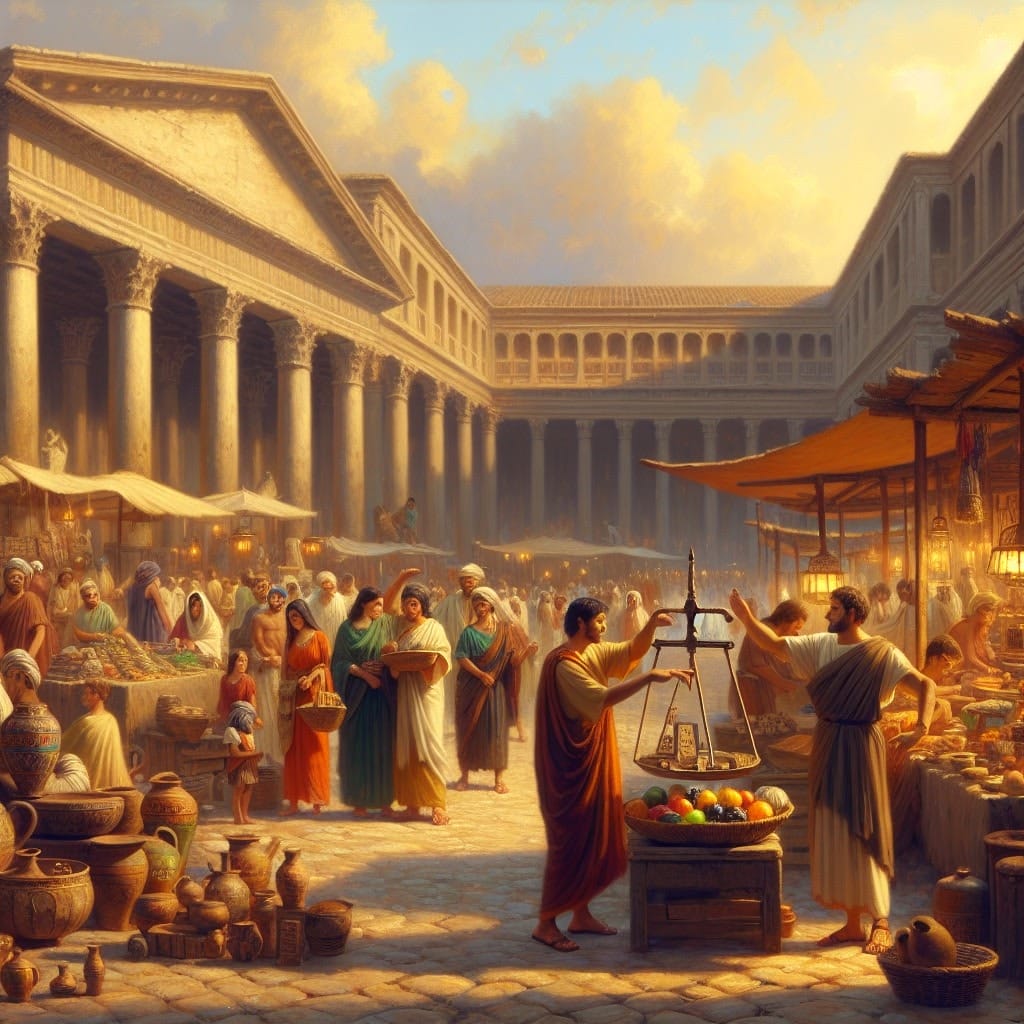
Despite the financial burden, the games also presented economic benefits. The influx of visitors to the Colosseum stimulated local economies, benefiting merchants and artisans who supplied goods and services. Furthermore, emperors used these events to display their wealth and generosity, reinforcing their positions of power. However, the costs were significant, often straining public finances and necessitating careful management of resources. The balance between economic benefits and costs of the games illustrates the complex interplay of financial considerations in the political landscape of Ancient Rome.
Logistics of Gladiatorial Events
Organizing gladiatorial games was a monumental undertaking, requiring meticulous planning and execution. The scale of these events demanded coordination across various domains, from securing suitable venues like the Colosseum to managing the influx of spectators, which often numbered in the tens of thousands. Emperors had to ensure that every aspect, from the selection of gladiators to the provision of amenities, aligned with the grandeur expected of such spectacles.
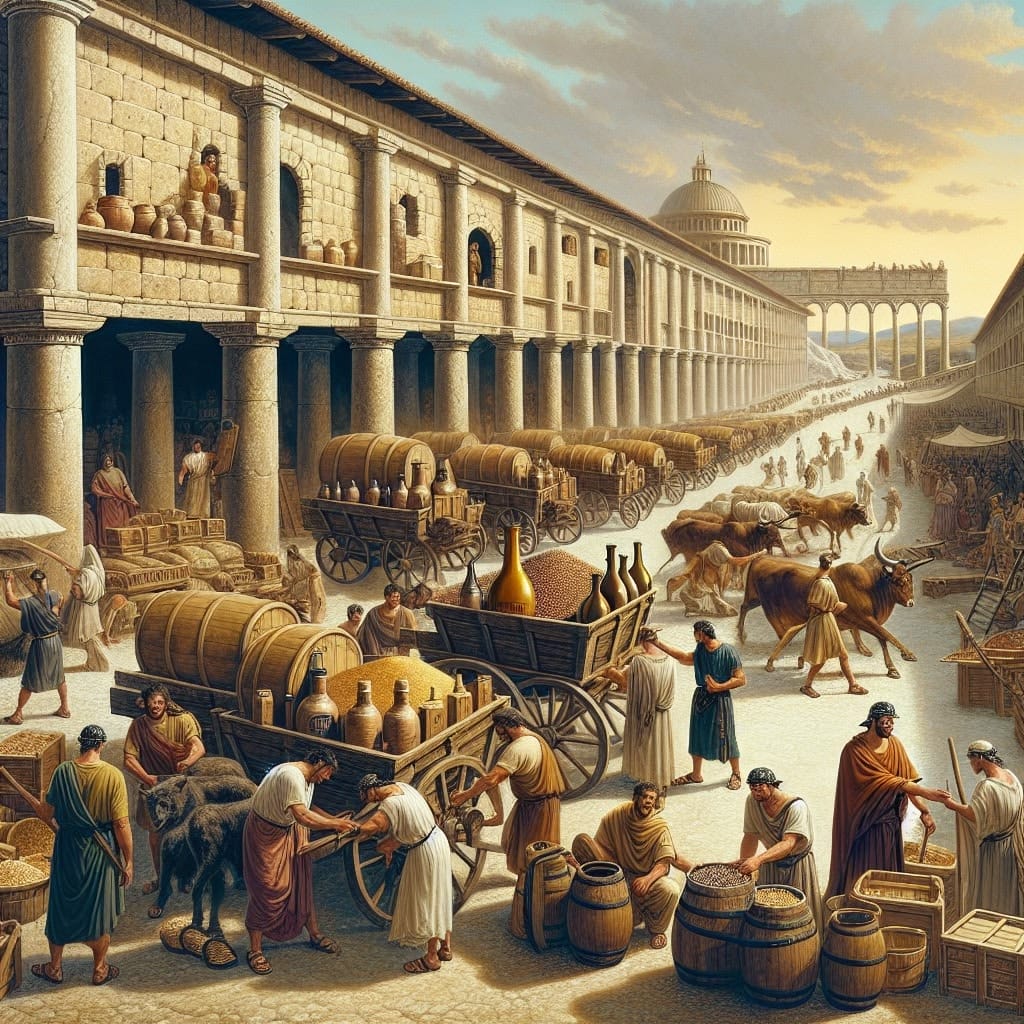
Logistical challenges were abundant, including the transportation and housing of gladiators, as well as the need to provide food and water for attendees. Additionally, maintaining security was paramount to prevent unrest. Solutions often involved drawing on the resources of the empire, such as utilizing the labor of slaves and the organizational expertise of military personnel. Despite these challenges, the successful execution of the games was crucial for emperors seeking to demonstrate their power and engage the populace, reinforcing their authority and popularity among the masses.
Cultural Impact
The cultural significance of gladiatorial games in ancient Rome extended beyond mere entertainment. They were a crucial part of Roman civic identity, reflecting societal values and priorities. The games were a manifestation of Roman ideals such as bravery and martial prowess, while also acting as a tool for reinforcing civic pride and unity. Unlike Greek athletic competitions, where athletes represented their city-states, Roman gladiators often fought as slaves. This dynamic shifted the focus from regional pride to the spectacle itself.
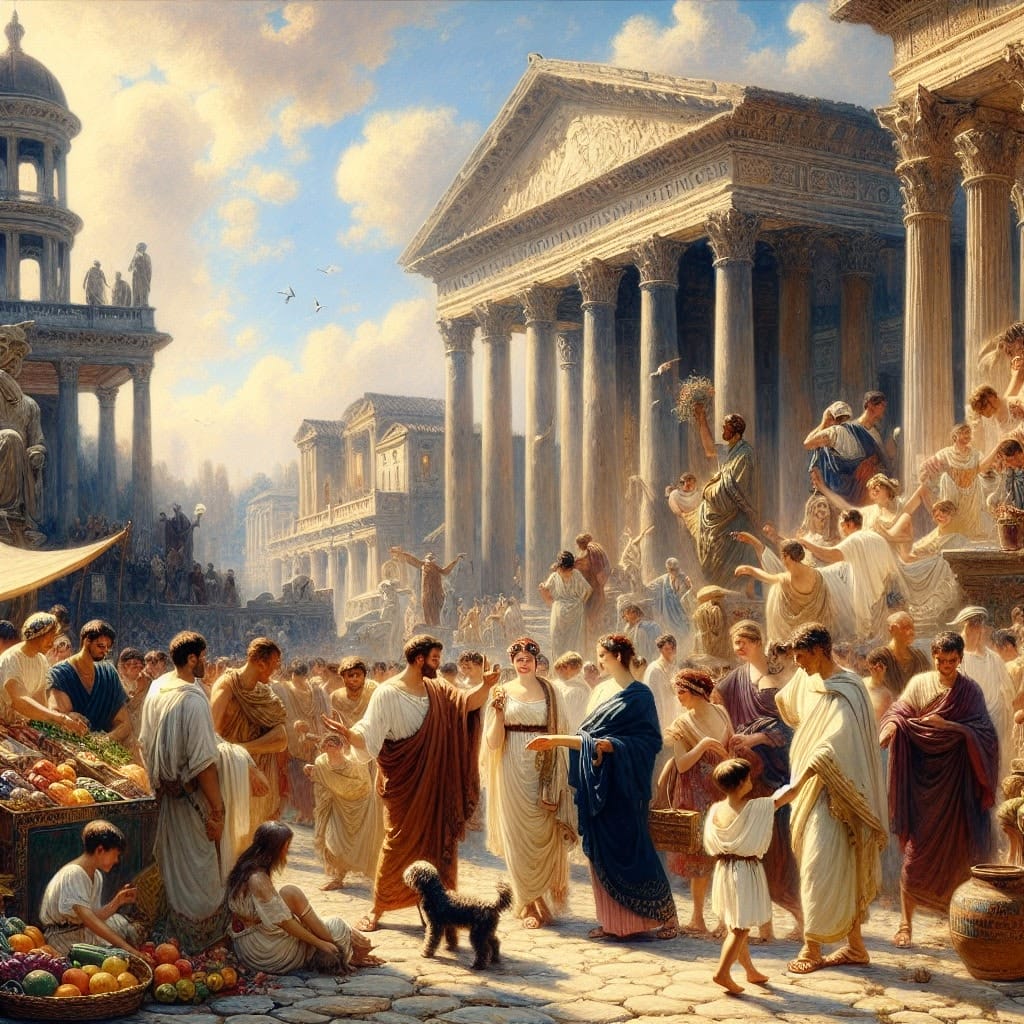
The long-term effects on Roman culture were profound. Gladiatorial games played a role in normalizing violence and spectacle as a form of social engagement, which had lasting implications on how Roman rulers maintained control and influence over the populace. Additionally, they left an indelible mark on cultural practices and public life, influencing arenas of power and entertainment that persist in contemporary culture. The legacy of these spectacles can be seen in modern sports and media, where public engagement and spectacle continue to echo the enduring relationship between political authority and entertainment.
Legacy of Gladiatorial Games
The enduring legacy of gladiatorial games is evident in numerous aspects of modern culture. These ancient spectacles have influenced contemporary sports and media, where the dynamics of entertainment and political power continue to intersect. The concept of captivating audiences through grand displays is mirrored in today’s professional sports arenas, where events serve not just as entertainment but also as platforms for political and social expression.
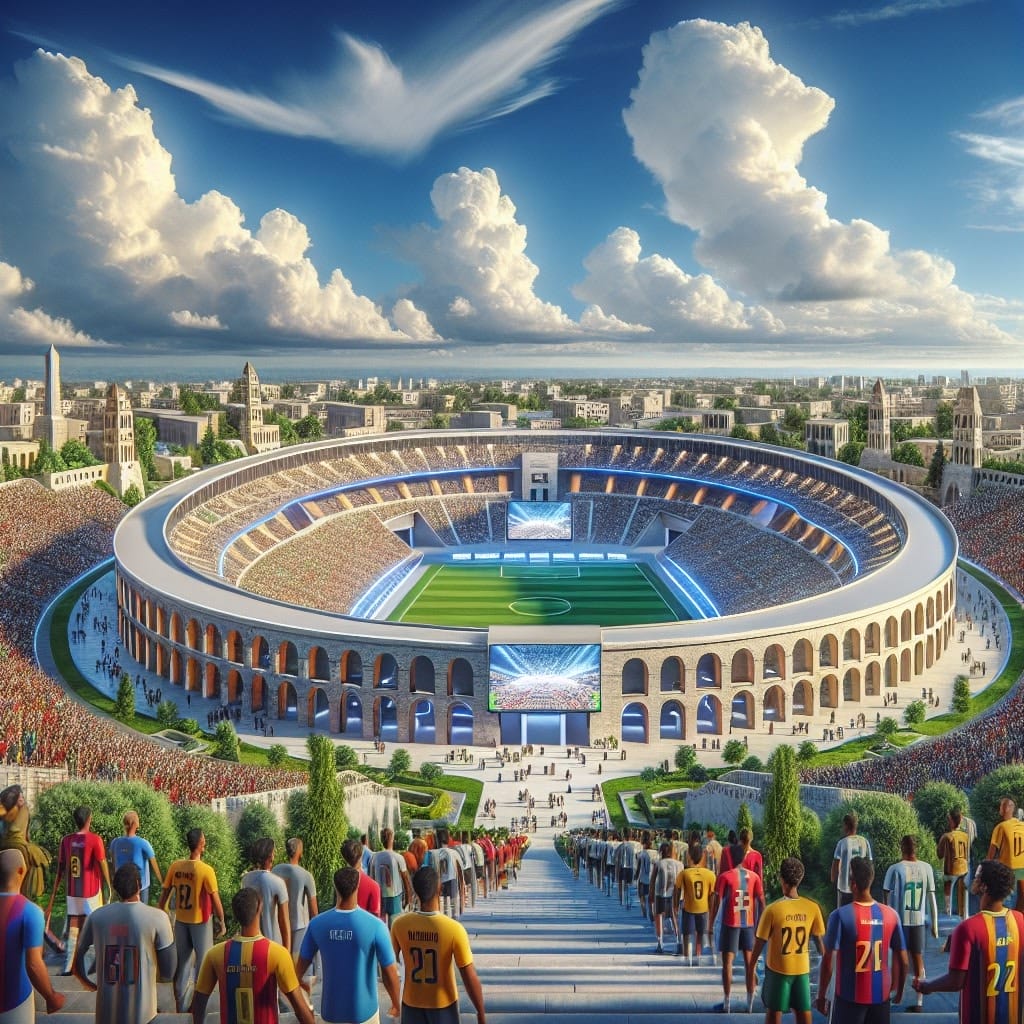
Moreover, the structure of modern sports events, with their ceremonial grandeur and crowd engagement, echoes the political theatre of the Roman games. The way public opinion and crowd participation shape modern sports is reminiscent of the Romans’ ability to sway public sentiment through gladiatorial spectacles. This historical relationship highlights how the past continues to inform the present, illustrating the profound impact of these ancient games on cultural practices that persist today.
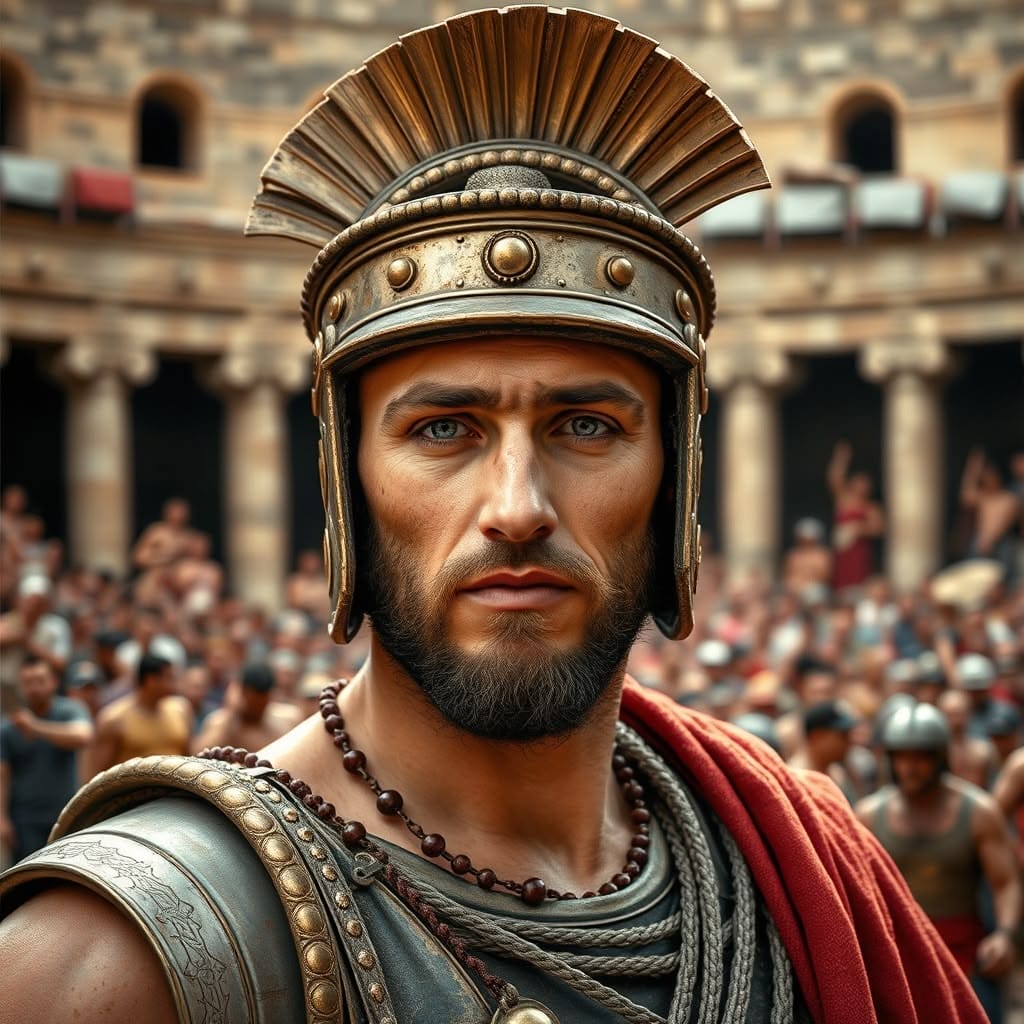
Conclusion and Summary
In exploring gladiatorial games as more than mere entertainment, this article has highlighted their profound political significance in ancient Rome. These games served as effective tools for emperors to project power, maintain public favor, and ensure social stability. By intertwining entertainment with propaganda, rulers could reinforce loyalty and distract citizens from societal issues.
Moreover, the strategic hosting of spectacles at venues like the Colosseum underscored the connection between imperial authority and public engagement. Such events were not only displays of wealth and power but also means of social control. Ultimately, the gladiatorial games were a complex blend of politics, culture, and societal manipulation, leaving a legacy that echoes in today’s political and entertainment arenas.
FAQ on Gladiatorial Games
In understanding the political intricacies of gladiatorial games, several questions frequently arise. Here, we address some of the most common inquiries:
Were gladiatorial games purely for entertainment? While they provided entertainment, the games were also a potent form of political propaganda. They allowed emperors to project power and distract citizens from societal issues, reinforcing social control.
How did the games influence public opinion? By hosting games at venues like the Colosseum, emperors could enhance their popularity. The spectacles demonstrated imperial generosity and power, engaging the populace and reinforcing an emperor’s authority.
Did the public have any role during the games? Spectators were given the illusion of power through gestures like the ‘thumbs-up,’ influencing the fate of gladiators. This engagement was a strategic move to make the public feel involved in governance.
These insights reveal the multifaceted role of gladiatorial games in ancient Rome, extending beyond mere spectacle to serve as a critical tool in the political landscape.

